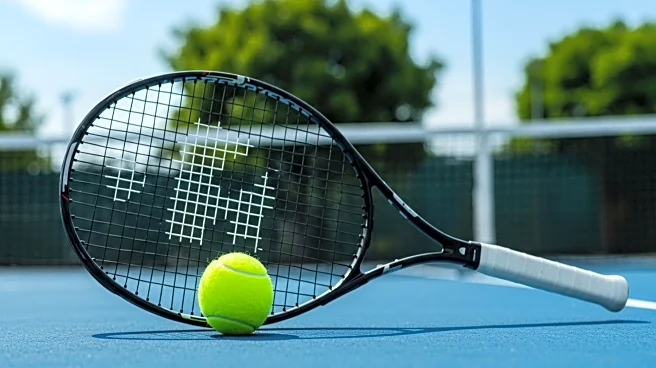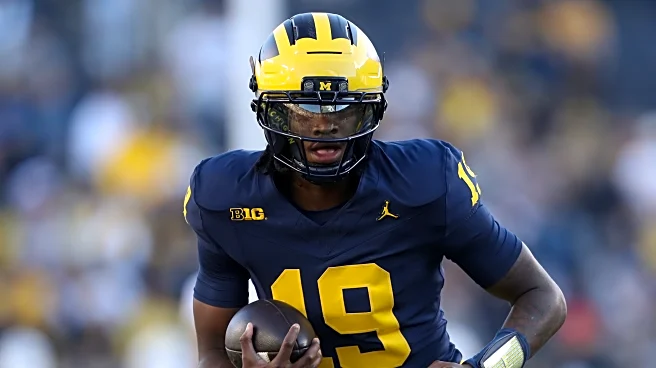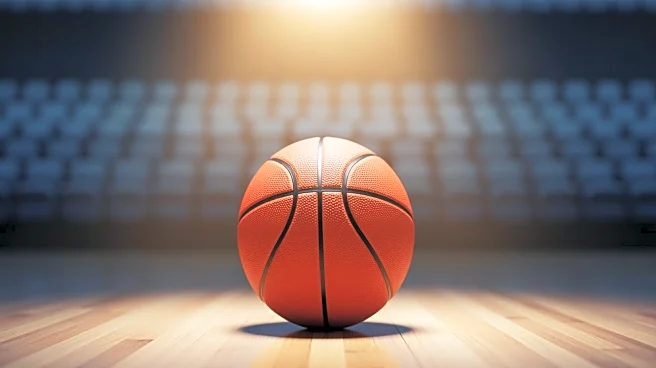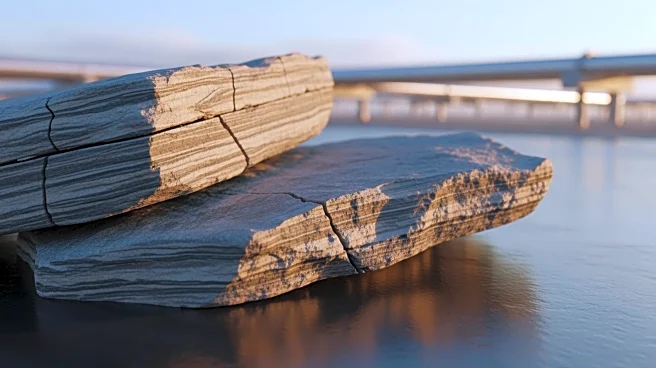What's Happening?
Venus Williams, the 45-year-old tennis legend, has been granted a wild-card entry to the US Open, marking her return to the Grand Slam stage as the oldest singles competitor since Renee Richards in 1981. Williams, who recently became the oldest woman to win a singles match since Martina Navratilova in 2004, is set to compete in the final Grand Slam of the year. Her comeback began last month at the D.C. Open, where she defeated Peyton Stearns in straight sets, securing her first victory in 16 months. Despite a first-round exit at the Cincinnati Open, Williams remains determined to make an impact at the US Open, where she will also participate in mixed doubles with Reilly Opelka.
Why It's Important?
Venus Williams' participation in the US Open is significant for several reasons. It highlights her enduring legacy and resilience in the sport, inspiring both fans and fellow athletes. Her return to competitive tennis after a lengthy hiatus due to injuries underscores the challenges faced by athletes in maintaining peak performance over time. Williams' presence at the US Open also draws attention to the evolving dynamics of age and competitiveness in professional sports, potentially influencing public perceptions and policies regarding athlete longevity and career sustainability.
What's Next?
As Venus Williams prepares for the US Open, her performance will be closely watched by fans and analysts alike. Success in the tournament could further cement her status as a trailblazer in tennis, while also impacting her future career decisions. The mixed doubles event with Reilly Opelka presents an additional opportunity for Williams to showcase her skills and adaptability. The outcomes of her matches may influence discussions on the role of veteran athletes in major competitions and their contributions to the sport's development.
Beyond the Headlines
Williams' return to the US Open not only highlights her personal achievements but also raises broader questions about the representation and support of older athletes in professional sports. Her journey may inspire initiatives aimed at promoting inclusivity and diversity within the tennis community, encouraging more athletes to pursue extended careers. Additionally, her participation could spark conversations about the physical and mental demands of high-level competition, leading to advancements in training and recovery practices for athletes of all ages.










